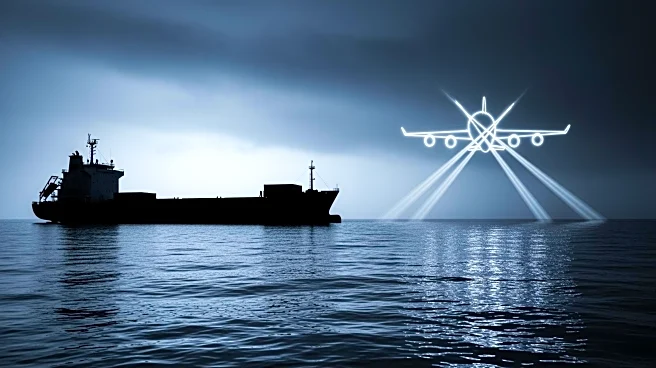What's Happening?
The United States has intensified its sanctions against Iran's energy trade, with coordinated actions by the State Department and the Treasury. The Trump administration has sanctioned over 170 vessels
involved in shipping Iranian crude and petroleum products. Additionally, sanctions have been expanded to include Iranian airline Mahan Air, accused of supplying Iran's proxy groups. The Treasury's Office of Foreign Assets Control (OFAC) is focusing on a network of front companies and shipping facilitators that support the Iranian armed forces by selling crude oil. The sanctions aim to disrupt Iran's reliance on crude oil sales to finance its military operations. The State Department has designated 17 entities, individuals, and vessels linked to the Iranian energy trade, including companies and individuals in Singapore, Vietnam, and the UAE.
Why It's Important?
These expanded sanctions are significant as they aim to curb Iran's ability to fund its military activities through oil sales. By targeting vessels and companies involved in the energy trade, the U.S. seeks to limit Iran's financial resources, potentially impacting its geopolitical influence in the region. The sanctions also reflect the Trump administration's aggressive stance against Iran, which could lead to increased tensions between the two nations. The involvement of international entities in the sanctions highlights the global reach of U.S. foreign policy and its ability to influence international trade practices. The sanctions could also affect global oil markets, as they disrupt the flow of Iranian oil to countries in East and South Asia.
What's Next?
The U.S. is likely to continue monitoring and expanding its sanctions against Iran, potentially targeting more entities involved in the energy trade. The international community may respond with diplomatic efforts to address the impact of these sanctions on global trade and regional stability. Iran may seek alternative routes or partners to circumvent the sanctions, which could lead to further geopolitical maneuvering. The U.S. Navy's involvement in blocking sanctioned tankers suggests a potential increase in military operations to enforce the sanctions, which could escalate tensions in affected regions.










